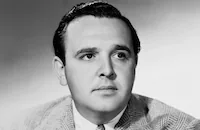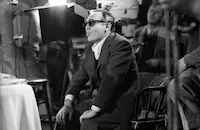Free and Easy

Brief Synopsis
Cast & Crew
George Sidney
Robert Cummings
Ruth Hussey
Judith Anderson
C. Aubrey Smith
Nigel Bruce
Film Details
Technical Specs

Synopsis
Londoner Max Clemington and his widowed father Florian make a meager living from romancing rich women but are always hopeful that one of them will someday secure their future by marrying a millionairess. Florian, who had had many opportunities to marry for money in his younger days, chose instead to marry for love, but Max assures his father that he will follow money instead of beauty. He starts by introducing himself at a concert to the wealthy but plain Lady Joan Culver. Joan is attracted to Max and invites him to a party at her home. Max likes the down-to-earth Joan, but when he sees the beautiful American widow Martha Gray at the party, he falls immediately in love. Martha is also attracted to Max, but is currently seeing the wealthy Sir George Kelvin. The next day, at Ascot Racecourse, Max writes a note to Martha indicating his feelings and, after taking her home, proposes to her. She is happy to accept until she learns that he is not wealthy, as she is also poor and needs a rich spouse. After Max leaves, George arrives and proposes to Martha, who accepts, but changes her mind when Max returns and convinces her that money isn't everything. The next evening, after Max happily tells Martha about his new job as a door-to-door salesman, he introduces her to Florian. Because Florian sees how much they love each other, his reservations about the marriage dissolve, and he determines to give them some financial security. He then plays chemin de fer , but loses a large pot that would have brought £5,000. To cover a £4,500 loss, Florian has to write a bad check and decides that suicide is the only way to avoid prison. That night, after Max goes to bed, Florian takes out his pistol and plans to shoot himself, but is stopped by Max. After he hears Florian's problem, Max decides to marry Joan in exchange for her settling his father's debt. Before he has a chance to tell Martha, however, Joan's father, the Duke, announces their engagement at a reception attended by a shocked Martha. That evening, at an impromptu engagement party, Max becomes jealous of Captain Ferris, an attractive young millionaire who is paying too much attention to Martha. Realizing that he must be honest, Max tells Joan everything. He promises to try to love her, but Joan is hurt and does not want a loveless marriage. She then announces to the guests that their "engagement" was just a joke to win a bet from her father. Max then goes looking for Martha and discovers that she is about to become engaged to Ferris. After telling Martha what he thinks of her attempts to snag a millionaire, Max leaves the party. On his way to his car, he runs into Florian, who reveals that he has just married a wealthy old flame who has settled his debt. As Max drives off, Martha runs after him and, knowing everything, realizes that she cannot live without him. After a brief but frenetic chase, Martha's car sideswipes Max's and they finally kiss and make up.

Cast

Robert Cummings

Ruth Hussey

Judith Anderson

C. Aubrey Smith
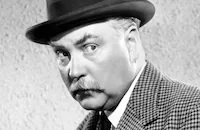
Nigel Bruce
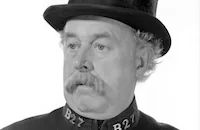
Reginald Owen
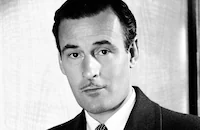
Tom Conway
Forrester Harvey
Charles Coleman
Theresa Maxwell Conover
Frederick Worlock

Charles Irwin
Ernie Stanton

Miles Mander
Claude King
Wyndham Standing
Florence Wix

Bess Flowers
Crew
Marvin Borowsky
Milton Bren
George Folsey
Cedric Gibbons
Frank E. Hull
Charles Lawton
Stan Rogers
Sandy Roth
Douglas Shearer
Frederick Y. Smith
Dolly Tree
Edwin B. Willis

Film Details
Technical Specs

Articles
Free and Easy (1941) -
By Violet LeVoit

Free and Easy (1941) -
Quotes
Trivia
The original play opened in London on 5 October 1928.
Hollywood Reporter records different crew members from screen credits; according to AFI, these credits MAY represent those who provided retakes.
Notes
Hollywood Reporter production charts include actors Donald Meek and Henry O'Neill in the cast, but neither were in the viewed print or mentioned in reviews. Production charts list Edward Buzzell, rather than George Sidney, as director, Frederick Y. Smith, rather than Frank E. Hull, as the film editor and George Folsey as the sole cameraman. According to news items, retakes were necessary on the film in late January 1941. It is possible that changes in the cast and production staff were made at that time. The Hollywood Reporter reviewer also speculated that producer Milton Bren's name was not in the onscreen credits because of production problems with the film. This was writer George Sidney's first film as a director. Robert Cummings was borrowed from Universal for the picture. After principal photography was completed, Cummings went to RKO to make The Devil and Miss Jones but, according to news items, was called back to M-G-M for retakes on Free and Easy, thus causing an interruption of several days on the RKO film.
M-G-M made an earlier version of Ivor Novello's play in 1932 under the title But the Flesh Is Weak (see AFI Catalog of Feature Films, 1931-40; F3.0541). screenplay for that version was written by Novello and is almost identical to the 1941 version except that the female lead in the 1932 film was from Vienna instead of America. The 1932 film starred Robert Montgomery and Nora Gregor. Although C. Aubrey Smith and Forrester Harvey were both in the 1932 and 1941 versions, neither recreated their earlier roles.



